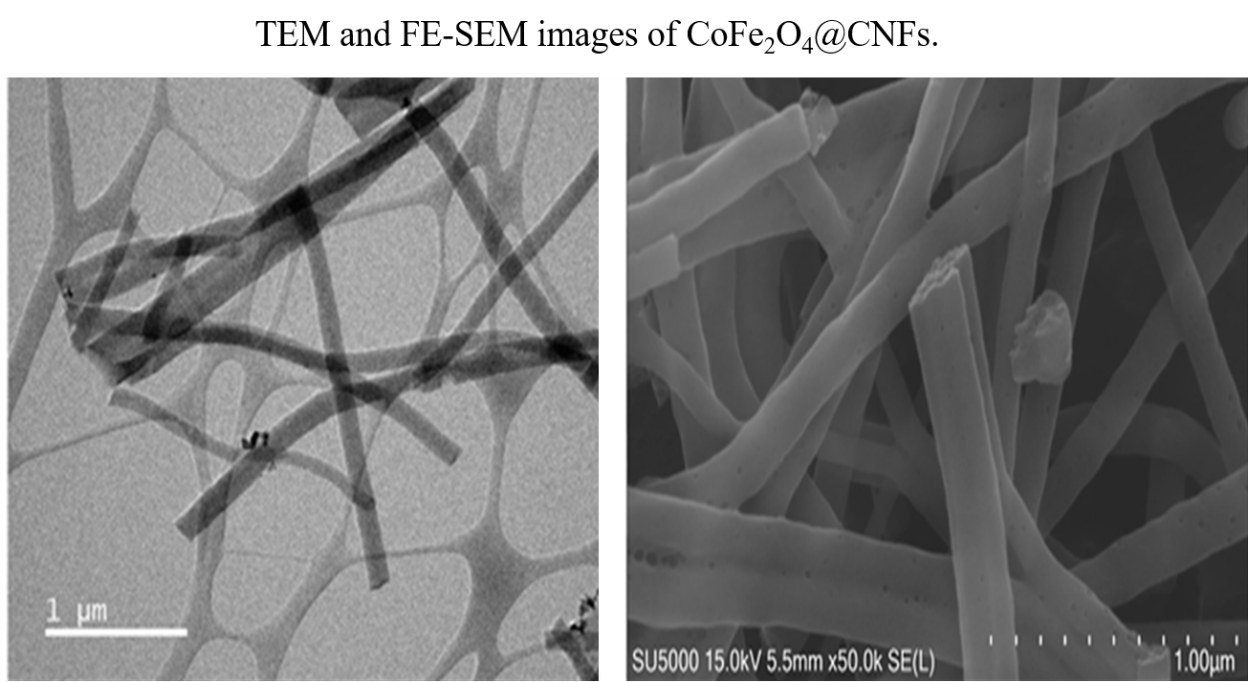T.P. Kamble, S.R. Shingte, V.D. Chavan, Deok-Kee Kim, A.D. Chougale, T.D. Dongale, P.B. Patil
1 School of Nanoscience and Technology, Shivaji University, Kolhapur, Maharashtra, 416004, India
2 Department of Physics, The New College, Shivaji University, Kolhapur, Maharashtra, 416012, India
3 Department of Electrical Engineering and Convergence Engineering for Intelligent Drone, Sejong University, Seoul, South Korea.
4 Department of Chemistry, The New College, Shivaji University, Kolhapur, Maharashtra, 416012, India.
*Author to whom correspondence should be addressed:
prashantphy@gmail.com (P. B. Patil)
ABSTRACT
This study presents the synthesis and electrochemical evaluation of MOF-derived CoFe2O4 nanoparticles anchored on carbon nanofibers (CoFe2O4@CNFs) for supercapacitor applications. By integrating hydrothermal and electrospinning techniques, we successfully fabricated CoFe2O4@CNFs with enhanced supercapacitive properties. The electrochemical performance of CoFe2O4@CNFs was rigorously assessed, revealing a remarkable specific capacitance of 527 F/g at a current density of 1 A/g. Additionally, the electrode demonstrated a power density of 234.93 W/kg and an energy density of 16.58 Wh/kg. These results highlight the synergistic effect of combining MOF-derived bimetallic transition metal oxides with carbon nanofibers, underscoring their potential in advancing supercapacitor technology. The findings suggest that CoFe2O4@CNFs can serve as a promising candidate for high-performance energy storage applications, offering a viable pathway to enhance the efficiency and capacity of supercapacitors.

Significance of the study:
This study introduces an efficient method to enhance supercapacitor performance by integrating MOF-derived CoFe2O4 nanoparticles with carbon nanofibers, resulting in a composite with high specific capacitance, energy density, and power density.
Summary of the study:
The paper details the synthesis of CoFe2O4@CNFs via electrospinning, demonstrating their superior electrochemical properties with a specific capacitance of 527 F/g, energy density of 16.58 Wh/kg, and power density of 234.93 W/kg.
